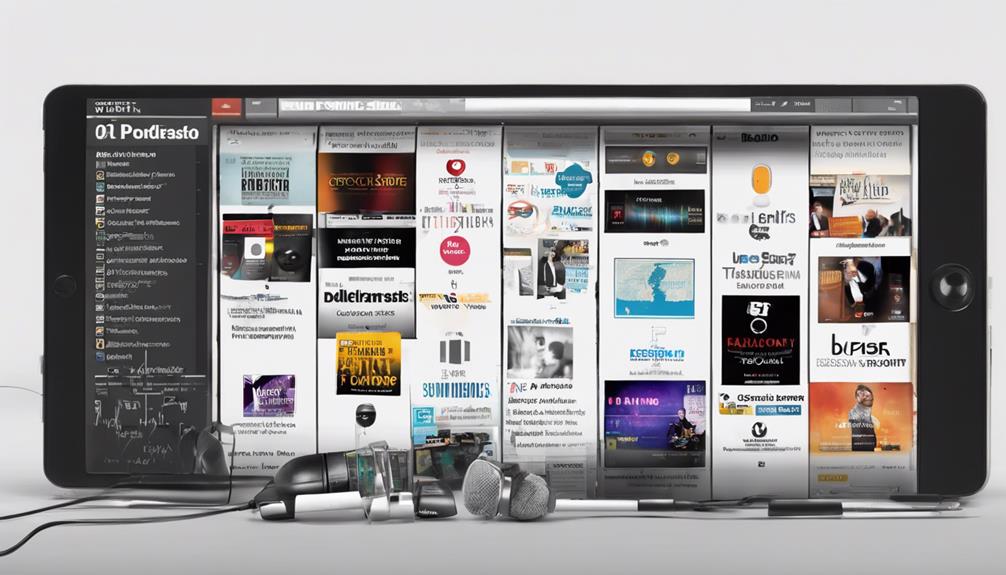The timeline of podcasting began with the RSS podcast feed in 2003, spearheaded by Dave Winer, revolutionizing content consumption. The term 'podcasting' was coined in 2004 by Ben Hammersley, following collaboration on iPodder by Adam Curry and Dave Winer. Steve Jobs integrated podcasts into iTunes in 2005, skyrocketing their popularity. This led to diverse content genres, global connectivity, and a shift in how we consume media. Podcasts evolved into personalized, narrative-rich experiences. Businesses engaged niche audiences through podcasting, reaping profitable returns. The journey of podcasting's origins paves the way for a deeper understanding of its impactful evolution.
Key Takeaways
- RSS podcast feed introduced by Dave Winer in 2003.
- Collaboration on iPodder by Adam Curry and Dave Winer in 2004.
- Coined term 'podcasting' by Ben Hammersley in 2004.
- iTunes integrated podcasts in 2005, revolutionizing content consumption.
- Podcasting community growth led to mainstream adoption and diverse content landscape.
Origins of Podcasting
With the introduction of the RSS podcast feed by Dave Winer in 2003, the foundation for podcasting was established. This moment marked the beginning of a new era in digital media consumption. Winer's innovation allowed for the automatic distribution of audio content, paving the way for what would become a groundbreaking way to share and listen to information.
Soon after, Adam Curry and Dave Winer collaborated on iPodder in 2004, a significant advancement in the podcasting world. This software simplified the process of downloading and organizing podcasts, making them more accessible to a broader audience. Their partnership played an essential role in shaping the early landscape of podcasting.
Additionally, the term 'podcasting' was coined by Ben Hammersley, further solidifying the identity of this emerging medium. Hammersley's contribution helped to define and popularize the concept of creating and subscribing to audio content online. These key players, along with pioneers like Christopher Lydon and the establishment of networks like Libsyn, laid the groundwork for the vibrant podcasting community we're familiar with today.
Coined Term 'Podcast'
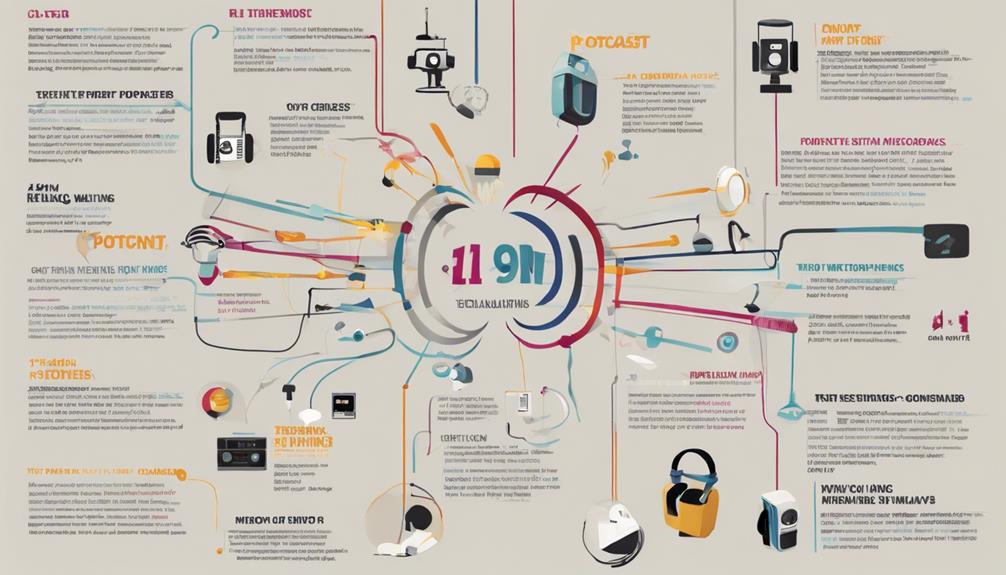
Upon its introduction in 2004, the term 'podcast' revolutionized the way we consume on-demand audio content. Coined by Ben Hammersley, the term 'podcast' cleverly merges 'iPod' and 'broadcast' to encapsulate the essence of delivering episodic audio shows online. This innovative word quickly gained traction, becoming the standard way to refer to this emerging medium. Hammersley's contribution not only provided a catchy name but also helped establish a unique identity for podcasts in the digital landscape.
—
| Key Points | Description | Impact |
|---|---|---|
| Coined Term | 'Podcast' by Ben Hammersley | Revolutionized Language |
| iPod + Broadcast | Blend of words | Reflects Digital Trend |
| Widely Recognized | Popularized with audio shows | Standard Terminology |
| Emerging Medium | Established identity | Defined Online Audio |
| Ben Hammersley | Contribution to naming | Shaped Podcast Culture |
Integration Into Itunes
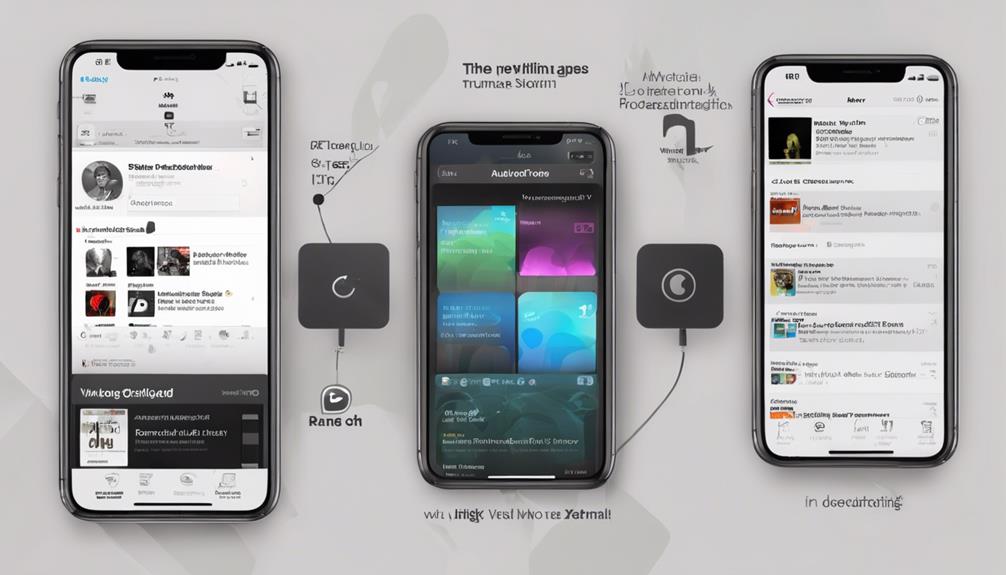
The integration of podcasts into iTunes by Steve Jobs in 2005 marked a significant shift in how content was consumed. With over 3,000 podcasts easily accessible for download, iTunes swiftly exposed a wide audience to podcast content. Podcast subscriptions through iTunes quickly gained mainstream popularity, leveraging the platform's massive user base.
- Steve Jobs's visionary decision to integrate podcasts into iTunes revolutionized the way people accessed and enjoyed audio content.
- iTunes became a game-changer by centralizing podcast distribution, making it convenient for users to explore a diverse range of shows.
- The seamless integration of podcasts into iTunes paved the way for the medium to reach unprecedented levels of mainstream success.
This pivotal move by Steve Jobs not only streamlined the podcast listening experience but also played an important role in propelling podcasts into the world of mainstream entertainment.
Mainstream Catapult
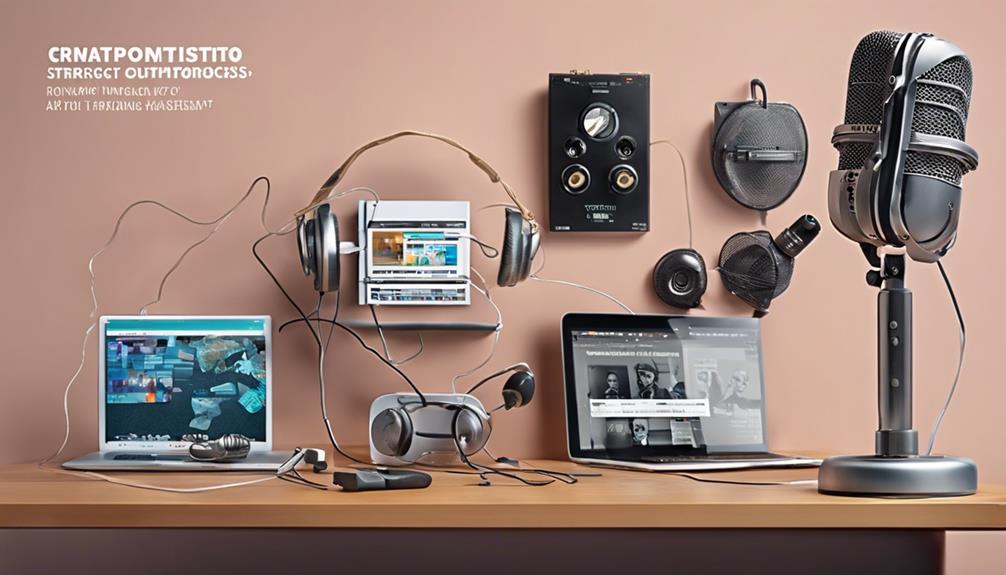
When iTunes integrated podcast subscriptions in 2005, it led to a surge in popularity for podcasts. Influential endorsements and easy access to over 3,000 podcasts through iTunes catapulted the medium into the mainstream, revolutionizing how people consumed content.
This pivotal shift marked a significant moment in the history of podcasting, solidifying its position as a popular media format.
Popularity Surge
With the term 'podcasting' coined in 2004 by Ben Hammersley, the integration of podcast subscriptions into iTunes by Steve Jobs in 2005 marked a pivotal moment that catapulted podcasts into mainstream popularity. This move revolutionized content consumption, leading to a surge in podcast listenership. The ease of access to over 3,000 podcasts on iTunes played an essential role in popularizing podcasts and expanding their reach.
- iTunes integration accelerated podcast accessibility.
- Mainstream audiences embraced podcasts for diverse content.
- Podcast consumption patterns shifted towards on-demand listening.
Influential Endorsements
Upon George W. Bush delivering a weekly podcast address, mainstream attention was drawn to podcasting, further solidifying its presence in the media landscape.
The integration of podcast subscriptions into Apple iTunes in 2005 played a pivotal role in the accessibility and popularity of podcasts. With over 3,000 podcasts available for download on iTunes, the platform played a vital role in the mainstream success of podcasts by making them easily available to a wider audience.
This move marked a transformative shift in content consumption habits, as podcast subscriptions quickly gained traction. The endorsement of podcasts by prominent figures like George W. Bush and their inclusion in iTunes played a key role in propelling podcasts into the mainstream media landscape, shaping the future of digital content consumption.
Diverse Content Landscape
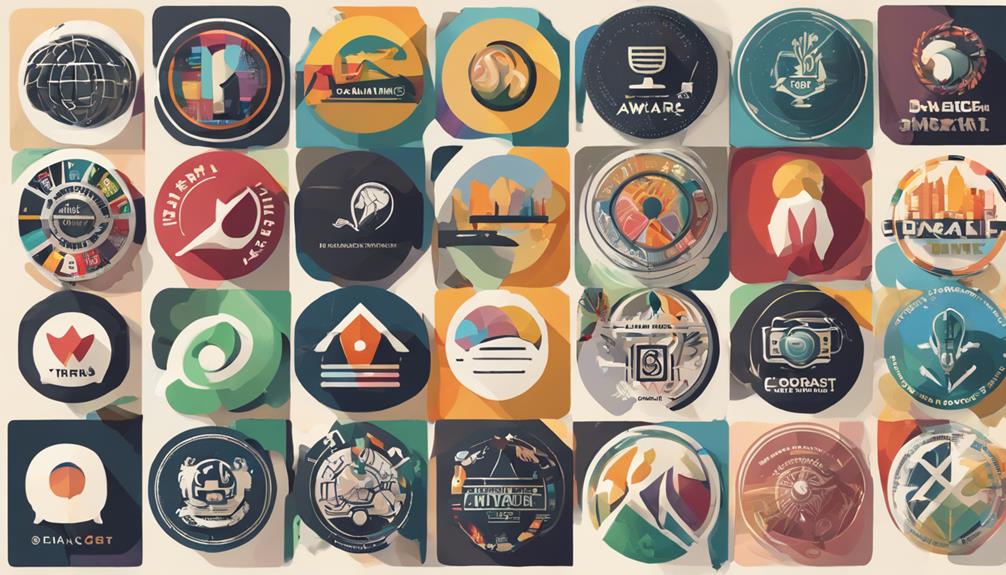
Podcasting offers a rich tapestry of topics, catering to a diverse array of listener preferences. From true crime enthusiasts to tech-savvy individuals, there's something for everyone in the podcasting world.
With genres spanning news updates, comedy shows, and in-depth explorations of real-world mysteries, podcast creators have crafted a landscape that promises entertainment and engagement for all.
Genre Variety
Covering a wide array of genres, podcasting offers a diverse content landscape that caters to various interests and preferences. This audio platform presents a plethora of options for listeners, from thrilling true crime stories to insightful news updates and entertaining celebrity interviews. The genre variety in podcasting guarantees that there's something for everyone, making it a versatile medium for both creators and consumers.
Some popular genres include:
- True crime: Engaging investigations into real-world mysteries like 'Crime Junkie'.
- News: Daily updates and in-depth analysis on current events with podcasts such as 'The Daily'.
- Entertainment: Celebrity interviews and engaging discussions on pop culture in podcasts like 'SmartLess'.
Listener Preferences
In podcasting, diverse listener preferences drive the rich content landscape, offering a wide array of topics and genres to cater to varying tastes and interests. Podcasts cover an extensive range of subjects, from news and comedy to true crime, ensuring there's something for everyone.
Listeners can explore niche genres like real-world mysteries, news updates, or celebrity interviews, reflecting the varied content available. Popular podcasts such as 'Crime Junkie,' 'The Daily,' 'SmartLess,' and 'Blood Ties' exemplify the diverse genres and topics accessible to audiences.
Creators focus on producing tailored content for niche audiences, resulting in a broad selection for listeners with different preferences. This dynamic content landscape delivers a rich mix of genres and formats, satisfying the diverse interests and tastes of listeners globally.
Digital Conversations Begin
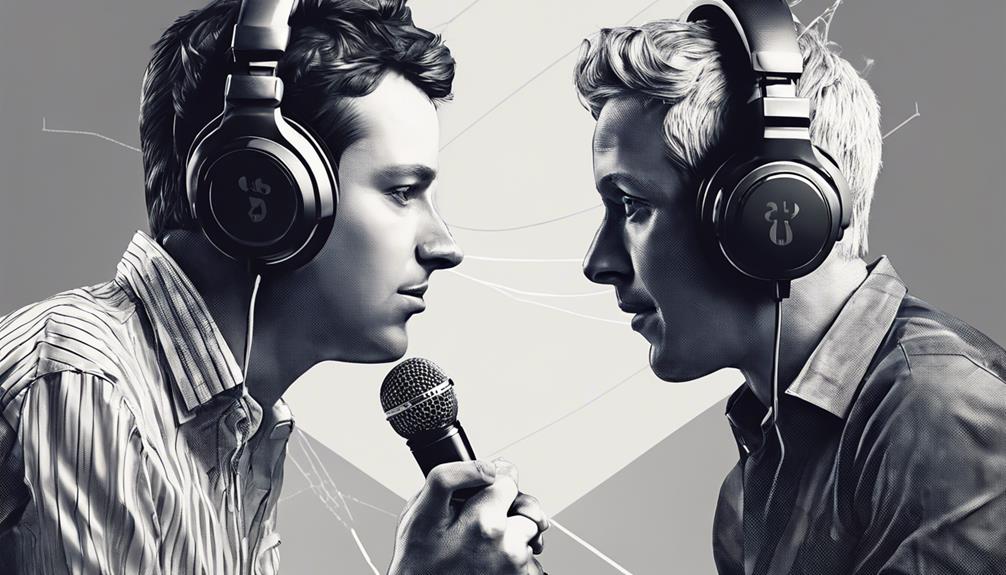
Initiating digital dialogues allowed for a new form of interaction and sharing of ideas among content creators as podcasting emerged as a platform for recorded conversations. This shift in communication sparked a wave of creativity and innovation, paving the way for personalized content experiences tailored to niche audiences.
- Collaborative Storytelling: Content creators like Winer and Lydon began collaborating on podcast episodes, blending their unique perspectives and expertise to engage listeners in enthralling narratives.
- Specialized Content: Podcasting embraced the concept of niche audiences, offering tailored discussions on specific topics ranging from technology and business to lifestyle and entertainment.
- Interactive Platforms: Podcasting platforms evolved to support seamless integration with social media, enabling creators to engage with their audience beyond the audio format through interactive discussions and feedback loops.
These advancements marked a significant departure from traditional broadcasting, empowering content creators to connect with audiences on a more intimate and personalized level.
Global Idea Sharing
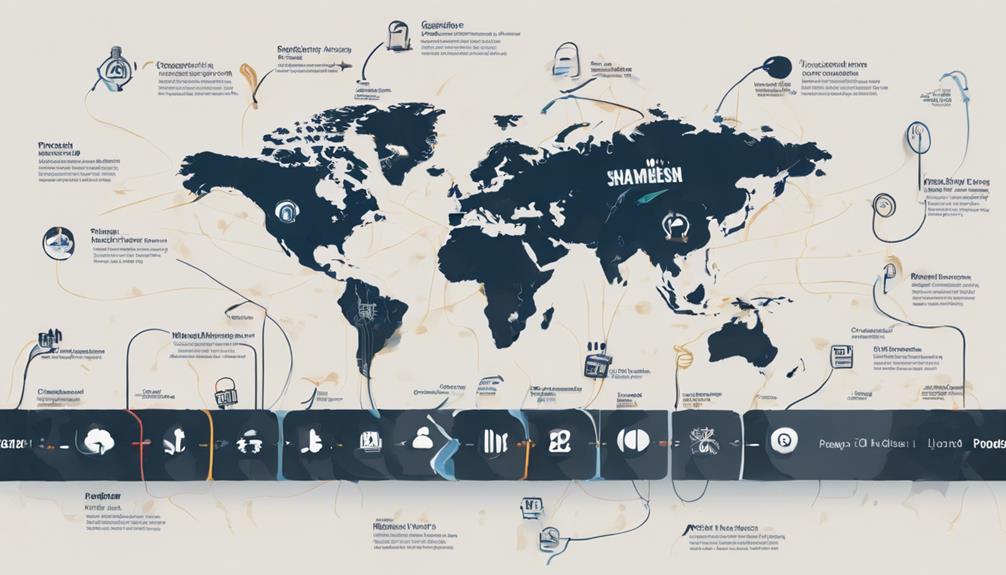
Podcasting serves as a powerful medium for fostering global connectivity and sharing diverse perspectives across borders and cultures. Through podcasting, individuals worldwide can share their thoughts and ideas, facilitating the exchange of knowledge and insights regardless of geographical boundaries. This platform enables the dissemination of information on a global scale, promoting cross-cultural understanding and communication. Podcasting platforms host a wide array of content from creators around the world, creating a rich tapestry of global perspectives for listeners to explore.
Listeners have the opportunity to access podcasts from various countries, exposing themselves to different viewpoints and experiences. This global idea sharing through podcasting not only broadens one's understanding of diverse cultures but also encourages dialogue and collaboration on a global scale. By embracing the diverse ideas presented through podcasts, individuals can expand their horizons and engage in meaningful conversations that transcend borders. Podcasting has truly revolutionized the way we share and consume information, fostering a more interconnected and informed global community.
Evolution of Content Consumption
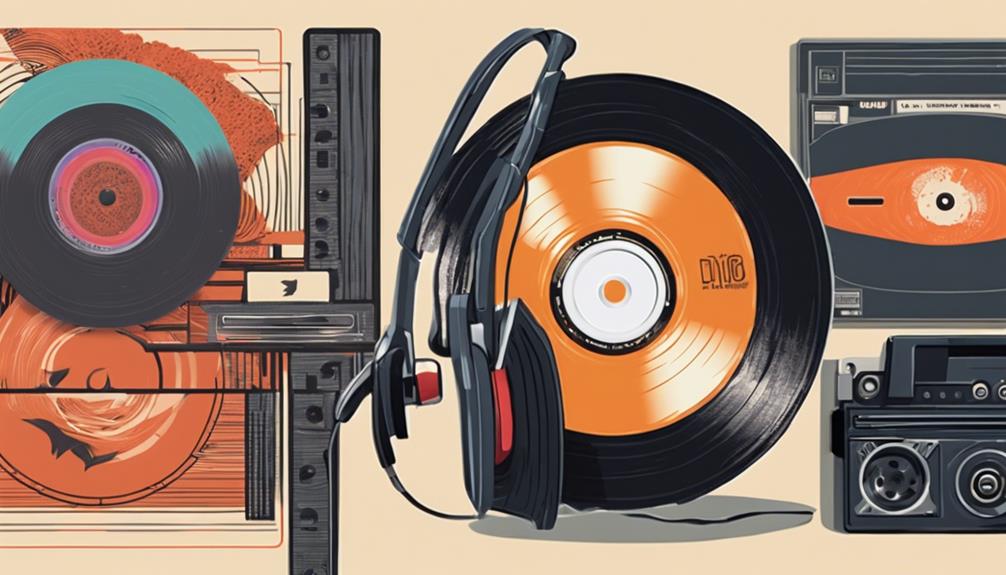
The evolution of content consumption in the world of podcasts has fundamentally transformed how audiences engage with audio media. This transformation is evident in various ways:
- On-Demand Radio Shows: Podcasting has revolutionized content consumption by offering on-demand radio shows, allowing listeners to tune in at their convenience.
- Episodic Formats: The episodic nature of podcasts caters to the modern listener's preference for bite-sized, easily digestible content.
- Diverse Platforms: Listeners can access podcasts through platforms like Apple Podcasts, Spotify, and Google Podcasts, providing a wide range of options for consuming audio content.
These changes have led to a significant shift in how people consume information and entertainment, offering a more personalized and flexible listening experience. With over 4 million podcasts covering diverse topics, the evolution of content consumption continues to drive innovation in the podcasting industry.
Storytelling-Rich Content
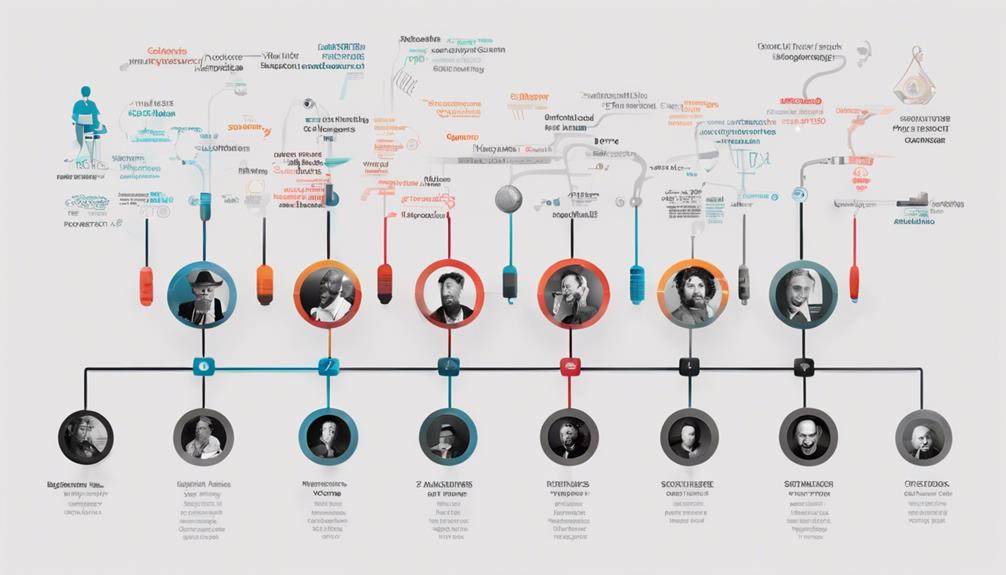
Exploring the immersive world of storytelling-rich content in podcasts reveals a captivating blend of soundscapes and narratives that engage listeners on a deep emotional level. Through the integration of sound effects, music, and expert editing, podcasts offer compelling storytelling experiences that transport audiences into new domains of imagination.
Creators leverage the power of storytelling to captivate listeners, evoke emotions, and deliver impactful messages in a way that resonates deeply. By intertwining narratives, interviews, and real-life experiences, podcasts craft compelling storytelling content that keeps audiences hooked till the very end.
This focus on storytelling has greatly contributed to the popularity and effectiveness of podcasts in conveying information and entertainment in a unique and engaging manner. As the podcasting landscape continues to evolve, the emphasis on rich storytelling experiences remains a cornerstone of the medium's ability to connect with audiences in profound ways.
Business and Niche Engagement
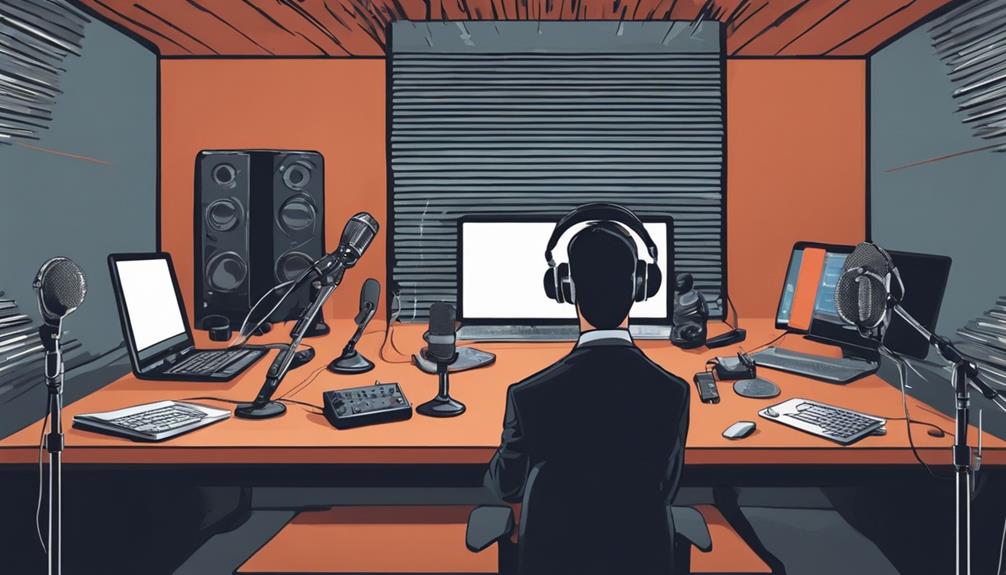
Businesses are increasingly leveraging podcasts to reach their audience in a more engaging and targeted way. Marketing through podcasts allows companies to tailor content to specific interests and connect with niche audiences effectively.
Analytics tools play an essential role in measuring engagement and tracking interactions, enhancing the overall impact of podcasting on business communication.
Marketing Through Podcasts
Utilizing podcasts as a marketing tool has become increasingly popular among brands, harnessing the high engagement potential of listeners to drive sales and brand awareness effectively. Businesses tap into the vast audience of podcast listeners, with 51% of the US population tuning in, indicating a wide reach for marketing efforts.
Podcast ads prove to be highly profitable, generating between $0.01 to $0.02 per listener, making it a lucrative channel for brands seeking return on investment. Niche engagement is another key advantage, as targeted podcast sponsorships enable brands to reach specific audiences effectively, ensuring their message resonates with the right listeners.
Notable brands like Blue Apron and ZipRecruiter have leveraged podcast advertising successfully to boost both brand awareness and sales.
Targeting Specific Audiences
Podcast advertising offers businesses a strategic avenue to engage with specific audiences through tailored content, fostering deeper connections and enhancing brand visibility within niche markets. By creating specialized episodes that cater to the unique interests of their target demographic, companies can establish themselves as thought leaders within their specific industries.
Niche engagement in podcasting allows businesses to achieve higher engagement rates and build meaningful connections with their audience, leading to increased brand awareness and customer loyalty. Through the use of podcasting, companies can effectively target their messaging to resonate with a highly focused group, ensuring that their content is relevant and valuable to their niche market segments.
This tailored approach not only enhances the overall listening experience but also strengthens the bond between brands and their audience.
Frequently Asked Questions
How Did Podcasting Start?
Podcasting started with Adam Curry and Dave Winer in 2004, revolutionizing how content is consumed. The term 'podcasting' was coined by Ben Hammersley, and Libsyn.com was the pioneering podcast service provider.
Steve Jobs' integration of podcast subscriptions into iTunes in 2005 propelled podcasting into the mainstream. With over 3,000 podcasts easily downloadable on iTunes, a new era of content consumption began, shaping the way we engage with media.
What Is the Timeline for Creating a Podcast?
When creating a podcast, we kick off by brainstorming topics and deciding on a format.
Next, we outline episodes, gather equipment, and record engaging content.
Editing comes next, followed by uploading to a hosting platform like Libsyn.
Promoting the podcast on social media and engaging with listeners is essential for building an audience.
Consistency in releasing episodes and seeking feedback helps refine the podcast over time.
Who First Introduced the Concept of the Podcast?
We can pinpoint the introduction of the podcast concept to Dave Winer in 2003. This pivotal moment sparked a revolution in digital media consumption.
Winer's innovation with the RSS podcast feed laid the foundation for what would become a booming industry.
With this visionary idea, Winer set the stage for a new era of on-demand audio content that continues to shape the way we engage with information and entertainment today.
How Do People Usually Start Podcasts?
When we start podcasts, we first identify a niche we're passionate about.
Then, we get basic equipment like a microphone and recording software.
Planning engaging content and a consistent format is vital.
Recording and editing guarantee high-quality audio and flow.
Finally, we publish on hosting platforms to reach more listeners.
It's all about finding your passion, getting the right tools, and creating compelling content to connect with your audience.
Conclusion
To sum up, the timeline of podcasting has been a journey filled with innovation and creativity, much like a tapestry woven with threads of diverse voices and stories.
From its humble beginnings to becoming a global phenomenon, podcasting has transformed the way we consume content and share ideas.
As we continue to explore this rich landscape of storytelling and engagement, the future of podcasting holds endless possibilities for connection and inspiration.

